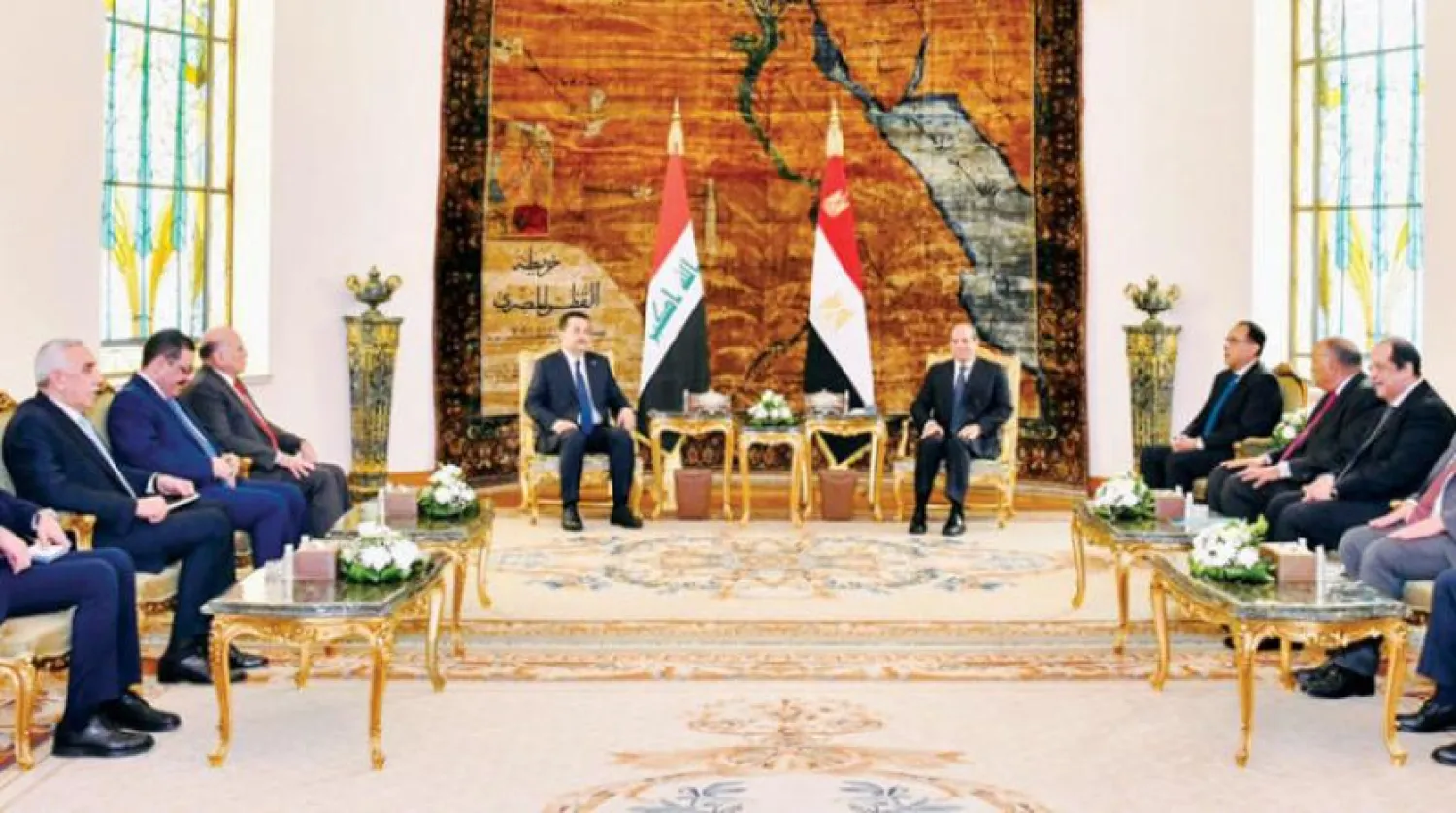Egyptian President Abdel Fattah Al-Sisi has stressed Egypt’s sturdy commitment to backing Iraq and providing full support to the Iraqi people at all levels, particularly in the areas of counter-terrorism and consolidating security and stability.
Sisi's statements came during his meeting on Monday with Iraqi Prime Minister Muhammad Shia Al-Sudani in Cairo.
The two officials discussed several Arab and regional issues of mutual concern. The two sides agreed on the importance of continuing intensified coordination to face the challenges in the region.
The Egyptian President assured Al Sudani of Cairo's "support for the security and stability of Iraq and his appreciation of the strategic relations binding the two nations", according to Ahmed Fahmy, spokesman for the Egyptian presidency.
The spokesman added that Sisi emphasized Egypt's keenness to activate and diversify bilateral cooperation frameworks with Iraq on the political, economic, commercial, and cultural levels.
The President also underlined the importance of speeding up the implementation of joint projects, in a manner that would help meet the needs of the Iraqi people and consolidate integration between the two sides to realize joint developmental goals.
The President also stressed Egypt's eagerness to maintain trilateral cooperation with Iraq and Jordan.
For his part, the Iraqi PM voiced appreciation for Egypt’s efforts to support Iraq on all levels.
Sudani affirmed Iraq’s eagerness to enhance and expand the strong bilateral cooperation with Egypt and benefit from Egyptian expertise in various fields.
Also, Egyptian Prime Minister Mustafa Madbouli met his Iraqi counterpart at Cairo International Airport.
Madbouli said that Egypt and Iraq are adamant about broadening cooperation and increasing trade exchange.
He affirmed Egypt’s full support for Iraq in its war against terrorism.
On the cooperation mechanism between Egypt, Iraq, and Jordan, he said: “We view this tripartite cooperation from a comprehensive strategic perspective.”
Madbouli emphasized the need to implement the outcome of previous Egyptian-Iraqi Joint Higher Committee sessions and activate the agreements and memorandums of understanding reached by the two countries in various areas.
The premier highlighted the ongoing cooperation to follow up on preparations for holding the next session of the Egyptian-Iraqi Joint Higher Committee in Cairo in May or June 2023.
For his part, the Iraqi PM touched on the tripartite cooperation with Jordan and the outcomes of the tripartite summit, especially regarding electrical interconnection, as the first phase with Jordan will be completed next June.
Sudani explained that there are discussions to establish a logistical area on the border between Iraq and Jordan to contribute to the provision of goods and products, where Egypt can benefit from the project by pouring Egyptian products into the Iraqi market.









